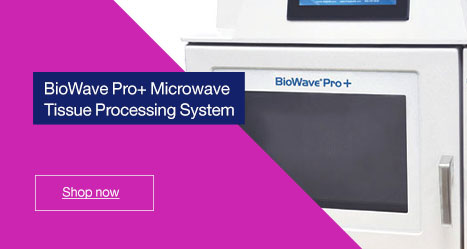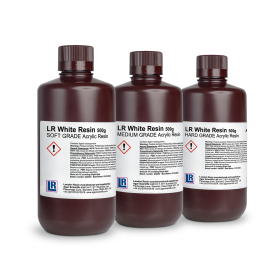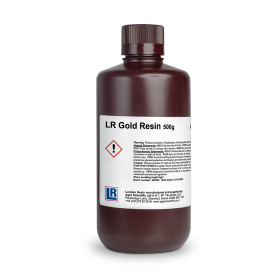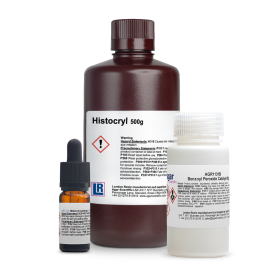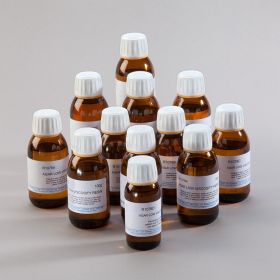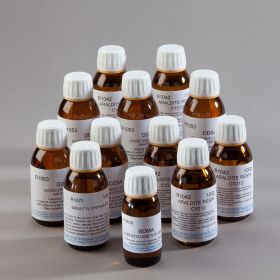Agar Scientific offer a range of epoxy and acrylic resins suited to the miscropists needs. See below our guide to help you choose the right resin for you.
Epoxy resins
Epoxy resins are thermosetting resins. Heat or a catalyst solidifies the resin into bulk which won't melt down. Epoxy resins are most commonly used for EM.
| Pros | Cons |
| Homogenous polymerisation - therefore easier to get regular, ultrathin sections | Does not resist sunlight very well (UV degradation) |
| Very little shrinkage |
Acrylic Resins
Acrylic resins are thermoplastic resins that can be heated and manipulated repeatedly.
| Pros | Cons |
| Visually a clearer polymerised resin | Usually uses organic peroxide |
| Can be miscible in water, therefore total dehydration is not always essental |
London Resin
London Resin’s range of acrylic resins are specifically formulated for the needs of the microscopist. They combine low viscosity, low toxicity and ease of use and are manufactured to the same rigorous standards from one of the world's largest suppliers of histological resins.
| Pros | Cons |
| Optical clarity | Volatile until cured |
| Ability to cold cure | Cold cure requires organic peroxide |
| Miscible in water - doesn't require full deydration | Heat cure darkens resin block |
Low Viscosity Resins
Agar Low Viscosity Resin gives rapid penetration, good contrast, ease of sectioning, stability under the electron beam and good staining characteristics. It can be used for both optical and electron microscopy applications.
| Pros | Cons |
| Rapid penetration | Requires fumehood/ventilation |
| Good contrast | Hydrophobic |
| Stable under electron beam | |
| Can omit propylene oxide step in some cases, although polyproylene oxide helps with cross linking | |
| Suitable for tissues, organs, embryos, as well as minerals to be polished |
Araldite Resins
Araldite® resin is an epoxy resin, which is extremely reliable and versatile for a range of tissues. It is easy to section. The sections are stable in the electron beam.
| Pros | Cons |
| Soluble in ethanol | Longer soaking time than acrylic resin |
| Particularly useful for thin sectioning | Excess accelerator leads to a darker, more brittle resin |
| Hardness of final block can be varied with a plasticiser | 24 to 48 hour cure time |
| Curing temperature reduced | Higher viscosity |
Agar 100 Resin
Agar 100 resin is closely controlled with respect to viscosity; successive batches have a consistently low viscosity.
| Pros | Cons |
| Low shrinkage | Increased amount of hardener required |
| Less specimen damage during curing | Increased hardener leads to increased viscosity |
| Less compression of sections | |
| Less electron beam damange | |
| Hardened at lower temperature |


